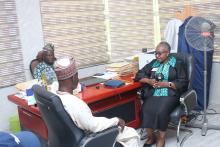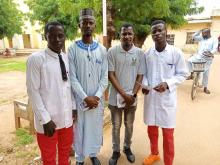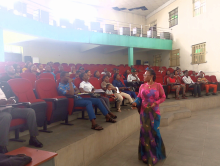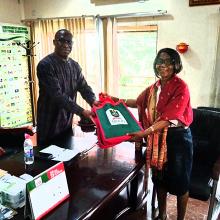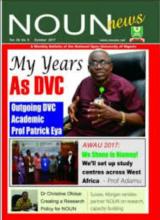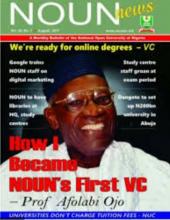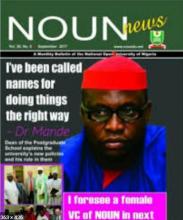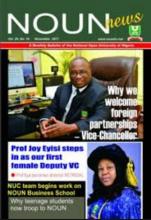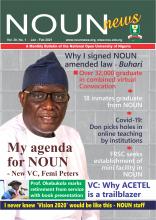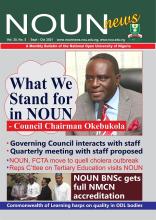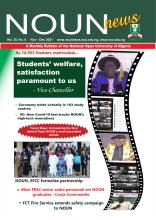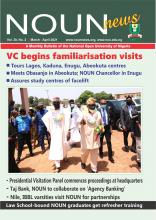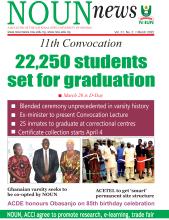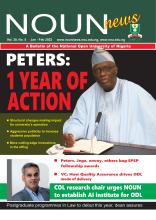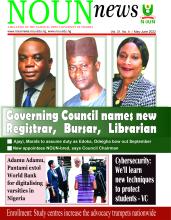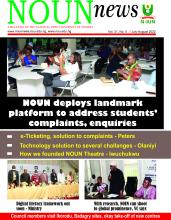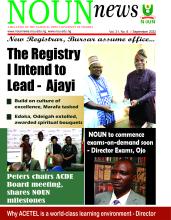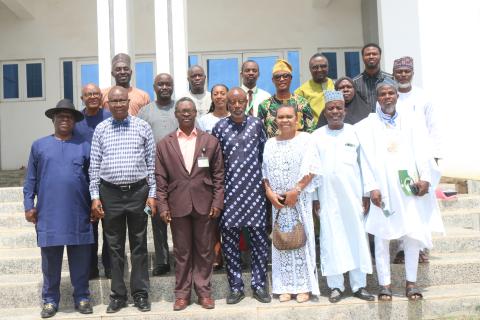
Experts in the field of media and information literacy have advised the Federal Government to relegate efforts of coming up with a legislation against the spread of dis/mis information among the youth and adopt the cultivation of a media literacy society as a panacea to the fake news and hate speech conundrum.
A multi-faceted approach with a slight legislation, according to them, is what authorities needed in order to have a more informed and safe-guarded society.
This was the thrust of a one-day public lecture jointly organised by the International Media and Information Institute (IMILI), the Federal Ministry of Information, the Media and Information Literacy and Intercultural Dialogue Foundation (MILID), and the National Open University of Nigeria (NOUN).
MILID’s representative, Dr. Chido Onumah, and Professor Chidinma Onwubere of the Department of NOUN’s Mass Communication presented lectures on the theme: “Cultivating Media Literacy Society: A Value-driven Approach to Addressing Mis/Disinformation among the Youth,” at the event which took place on Tuesday, July 30, 2024 at the NOUN headquarters in Abuja.
Dr Chido Onumah making his presentation
In his presentation, Onumah corrected the predominant notion of taking the youth as the focal point when talking about raising media and information literacy, saying that even the elderly usually fall prey to the antics of the purveyors of mis/disinformation in the society.
He said: “We cannot legislate our ways out of this fake news, hate speech, and misinformation, but education and knowledge sharing is the way out."
He added that it was evident a few years back when the government banned Twitter in Nigeria, and youth bypassed the embargo by employing VPN to access the site.
He said the phenomenon has since become pervasive as mis/disinformation and even malinformation can be traced to not only the youth, but governments and other organisations around the world often deliberately engage to realise certain interests.
The speaker, therefore, underscored the need for the empowerment of youth with the essential knowledge of media functions, as materials of media and information literacy abound free of charge and can be deployed to all aspects of life.
Professor Onwubere, on her part, defined and explained mis, dis and mal information, saying that misinformation is an unintentional spread of fake news, which is the total opposite of disinformation, whereby the purveyor was deliberate in its spread, while mal minformation carries the ultimate malice in the intention.
Professor Chidinma Onwubere making her presentation
She said all the three aspects where simply differentiated by the intention of the person, even as she dwelt on the aspect of digital access and gender disparities.
Onwubere said a wide gap in digital access exists between the two genders in Nigeria despite the increasing internet penetration.
She gave details and breakdown of the challenges facing the female gender when it comes to the digital access.
Earlier, the Vice-Chancellor of NOUN, Professor Olufemi Peters, described the lecture as topical and commended the department, saying that media and information literacy has become a critical skill in the society.
Peters, who was represented by the Director of Academic Planning, NOUN, Professor Gregory Okagbare, noted that media and information literacy involves the activity to critically analyse content, saying, “As we move forward in digital era, media skill is a necessity.”
He urged individuals to be committed to promoting media literacy in the society as the rapid spread of mis/disinformation has continued to pose a significant challenge to the world.
On his part, the Head of the Department of Mass Communication, Dr. Lateef Adelakun, said the department has since keyed into this global trend by coming up with a programme through the Massive Open Online Courses (MOOCs), which received a wider acceptance.
He called on individuals to improve their media and information literacy by subscribing to the NOUN’s programmes of the institute, following the Federal Government’s adoption and re-launch of the programme in 2022.
- Log in to post comments
- 134 views

